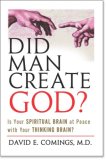Introduction

This book is divided into seven parts.
Part I. Evolution. In premodern
times, the concept of God the creator was central to providing man with an
answer to the questions, “Where did we come from? Where did all the creatures
on earth come from?” After Darwin’s momentous studies on The Origin
of Species, these questions had a rational, scientific answer. Species evolved
by evolution and natural selection. However, the validity of the central role
of evolution in the creation of man and earth’s creatures is contested
by both the young world creationists and proponents of an old world but with
Intelligent Design.
This section is about Darwin’s theory
of evolution and its more modern versions such as neo-Darwinism, post neo-Darwinism
and evolutionary developmental genetics. Darwin wrote his ground-breaking The
Origin of Species in 1859 before DNA and genes were identified, before
the development of the field of population genetics, and before all of human
DNA as well as the DNA of many other organisms, were completely sequenced.
Because of this lack of knowledge of modern genetics there were many issues
that were left unexplained in Darwin’s original theory and even in neo-Darwinism
formulated in the 1940s. Many aspects of the fossil record were incomplete
in the mid-nineteenth century and to some extent, still are.
Part II. Intelligent Answers to Intelligent Design reviews some of the ID objections to Darwinian evolution. Based on quite recent aspects of molecular biology and paleontology, I show that despite the ID objections the basic Darwinian theory of evolution is still strong and vibrant. I hope to explain some fairly complex science in a fashion that is easily understandable for the non-professional reader. This section has been presented in some detail because Intelligent Design arguments have been repeatedly used to validate The Theory of God. If readers are to come to their own conclusions about whether these arguments are valid or not, they need to know there are intelligent answers to all of the claims of the Intelligent Design creationists.
Part III. Cosmology. In premodern times, the concept of God the creator was also central to providing man with an answer “Where did the earth come from? The sun? The stars? The universe?” If the reader thought that parts of Darwinian evolution were difficult to explain, some of the weirdness of quantum mechanics and string theory is even more so. Many of the new findings about astronomy and cosmology are highly relevant to issues of theology, religion, spirituality, and whether a God is necessary to create the universe. For example, does the Big Bang theory indicate that the universe was created from nothing? To many, the Big Bang proves the existence of God or at least the correctness of The Theory of God. Does it? Quantum theory shows that subatomic particles are instantaneously connected across the entire span of the universe. Some suggest this supports the concept of many Eastern religions that everything in the universe is interconnected. Does it? Does the combination of Darwinian evolution and cosmological evolution mean man is here by chance? Is he? If so does this affect our sense of purpose and the meaning of life? These and many additional spiritual implications of the new physics and modern cosmology are discussed.
Part IV. The Biology of the Rational and Spiritual Brain reviews the parts of the brain involved in consciousness, executive functions, rational and abstract thought, pleasure, social interactions, spirituality, meditation, self-healing, hope, happiness, and the biology of faith versus reason. Part IV shows that most of these traits and capabilities are hard-wired into the brain.
Part V. The Genetics of the Rational and Spiritual Brain reviews the role of genetic factors in bad behavior, altruism or good behavior, rational thought, and spirituality. When traits and capabilities are hard-wired into the brain this occurs because of the presence of a number of different genes interacting with each other and the environment.
Part VI. The Evolution of the Rational and Spiritual Brain. Complex, hard-wired, genetically regulated traits and capabilities do not just appear from nowhere. They are the result of evolution and natural selection over a period of thousands and millions of years. This section reviews the evidence relevant to the evolution of the rational brain (intelligence) and the spiritual brain (spirituality).
Part VII. Other Aspects of Spirituality and Religion. There are many additional aspects of human spirituality that are relevant to the question, “Did man create God?” This section reviews a number of these, including the origin of the major religions; mysticism, myth and ritual, and the role of psychedelics in spirituality and religion. In addition, the following questions are explored: Does God play favorites? Is one religion superior to another? Are there benefits to religion? Are there evils to religion? Is evil in the world incompatible with the existence of a kind and benevolent God? Are the sacred books literally true? and, Is God dead?
Part VIII. Summary. Parts
I through VII have covered a wide range of complex subjects. Part VIII
reviews these in relation to the subject of the book, Did Man Create God?
Was man the author of the Theory of God? A range of issues are discussed
concerning the meaning of life, whether morality or happiness is dependent
on religion, and, most importantly, is it possible for you to develop a
spiritual life that is not in conflict with your rational brain?
In recent decades there has been a dramatic
increase in terrorism related to religious fundamentalism. This derives from
the assumption that one religion is closer to being the true religion, one
God is closer to being the true God, and one sacred religious book is better
than another sacred religious book. All of these opinions are based on the
assumption that God created man and that the sacred religious texts represent
the spoken word of God. I challenge the reader to examine the validity of these
assumptions.
While I personally do not believe in the existence
of God, I am somewhat of a unique atheist in that I have the greatest respect
for spirituality and many forms of religion. Some have referred to such individuals
as “non-theists.” Most Americans wrongly think that atheists are
anti-theists, people who not only do not believe in God but also object to
other’s belief in God. A non-theist is simply “without a god-belief.” In
fact I argue that spirituality may have played such an important role in the
evolution of man that without it we might not be here. Although I believe that
a high level of spirituality does not automatically require that one also believe
in God or be religious, I have respect for those whose level of spirituality
has led them to believe in God and adopt religion as a means of expressing
that belief. However, at the same time it is critical that people not hold
the false beliefs that the universe, the earth, and all life could not have
evolved without the helping hand of God, that one set of beliefs is superior
to another, that one religion is better than another, or the false belief of
fundamentalist religions that their sacred religious texts are the direct word
of God and thus must be believed in their literal rather than in their metaphorical
sense.
Knowledge of the biology of the spiritual brain
helps us to understand why the majority of the human race believes in God.
We owe it to ourselves and to the survival of the human race to understand
where this need for spirituality comes from. We need to develop a rational
spirituality that resists the adoption of rigid dogmatic religious systems
and the belief in the superiority of one religion over another.
